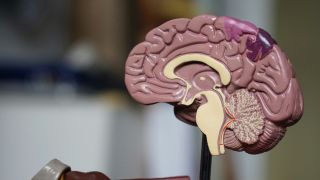Gender
The Easy and Hard Problems of Consciousness
Personal Perspective: No one knows you better than you know yourself.
Posted April 29, 2024 Reviewed by Kaja Perina
Key points
- Individuals are the experts on their own lives.
- There is very little we can objectively observe and measure when it comes to a person’s experiences.
- Ultimately, we cannot claim to know more about a person than they know about themselves.

Who Knows You Best?
How does it feel when someone claims to know more about you than you know about yourself?
One of the central tenets of my education, training, and theoretical perspective has always been that we are all experts on our own lives. Sure, clinicians, researchers, advocates, and the like may bring expertise to help us do things like analyze our problems and achieve our goals, but ultimately we are experts about ourselves.
While there of course can be some relief when someone provides insight into an aspect of ourselves with which we struggle, it doesn’t usually feel good when someone else claims they are the experts on us.
And though we’re in an era of affirmation and understanding the importance of intrapersonal characteristics like identity, I’m still shocked to discover that students and acquaintances continue to assert that they know more about someone – like who that person is or how they feel – than the person knows about themselves.
Cognitive Psychology To The Rescue
When I teach cognitive psychology, I find that one of the most helpful, simplest, and interesting concepts from the field centers around consciousness. Simply put, consciousness is awareness. It’s our experience of events and stimuli.
We certainly don’t all experience everything in the same way. For instance, when I say I’m happy, do you think I mean the same thing you mean when you say that? What about when I say I’m sad? Angry? It’s an easy point to understand when we consider emotions.

Speaking of easy, we can thank cognitive psychology for one of the most applicable concepts that helps us illustrate this: the easy vs. hard problem of consciousness.
To demonstrate this concept, I usually show my students a photo of one of my rescue Pugs. “What do you feel when you look at this?” I ask. Answers range, understandably, from “It’s the cutest thing I’ve ever seen in my life” to “Holy hell, what the heck is that!? It’s so ugly!”
For the easy problem of consciousness, I tell them, we could look at brain scans of everyone in the room and observe that pretty much the same thing is going on for most of us. We’d likely see that certain common areas of the brain are active, like those associated with vision and emotion.
But that’s as far as we can go. That’s why it’s “easy.” We can tell that almost everyone has a similar basic, objective experience – usually around brain activity – when presented with the photo. We can’t, however, go further than that. Doing so is too subjective.

The Hard Problem of Consciousness
That subjectivity is the hard problem of consciousness. Beyond mere brain activity, what do you experience when you look at a photo of my rescue Pug? Do you think it’s the cutest thing you’ve ever seen? Are you, as a man on a walking path recently stopped to tell me, disgusted and shocked by just how ugly Pugs are? Something else?
While I’d love to argue that my dogs are objectively adorable, I can’t. No one person will have the same experience looking at them. Even two people who think they are ugly will have different subjective “ugliness” reactions, including feelings and emotions.
That’s the hard problem of consciousness. We all have different subjective experiences when faced with any event or stimuli. So, when I say I’m happy, I could mean something vastly different than what you mean when you say you’re happy. It’s subjective and nearly impossible to measure.
With the photo of my rescue Pug, all we can scientifically, objectively say is that you’re looking at an image. And we use things like brain scans to tell you that, so all we can really say is that certain areas of your brain are active.
What we cannot do is say what you are experiencing, how you’re feeing, etc. Who can say that? You!

Applying It To Gender
I think about the easy and hard problems of consciousness a lot when it comes to gender because, lately, I’ve found that this is one aspect of human experience that other people still (vehemently) claim to know better than the individual.
“That’s not who you are. This is who you are.”
We can’t say that. As the easy and hard problems of consciousness illustrate, only people themselves can tell us who they are. Only we ourselves can say, “This is my experience of my gender.”
Sure, similar to the easy problem of consciousness, I can say how a person looks. I may even know a person’s chromosomes, secondary sex characteristics, and things like that, but I can’t go beyond that. I can’t say what a person’s experience of identity is.
Could someone say that about you? Should someone say that about you? Frankly, they don’t know, they can’t know, because they aren’t in your head. Only you are.

The Subjective Nature of Experience
Ultimately, the easy and hard problems of consciousness help us understand the subjective nature of experience – that we can only go so far. I can always objectively say what I observe about someone else, but that tells me almost nothing about that person’s experience.
Clinicians understand this. That’s why, perhaps to our amusement, therapists say things like, “It sounds like…” over and over again. It might sound like you’re angry but maybe that experience with your mother actually made you sad, not mad. That’s why your therapist checks their interpretations and provides feedback with that phrase.
So maybe we’d all do well to think about the easy and hard problems of consciousness as we interact with others. We are very limited in what we can truly know about a person, especially when it comes to their experience. Just as you’re an expert on your own life, everyone else is an expert on their own life, too.
It’s too hard to approach it any other way.




